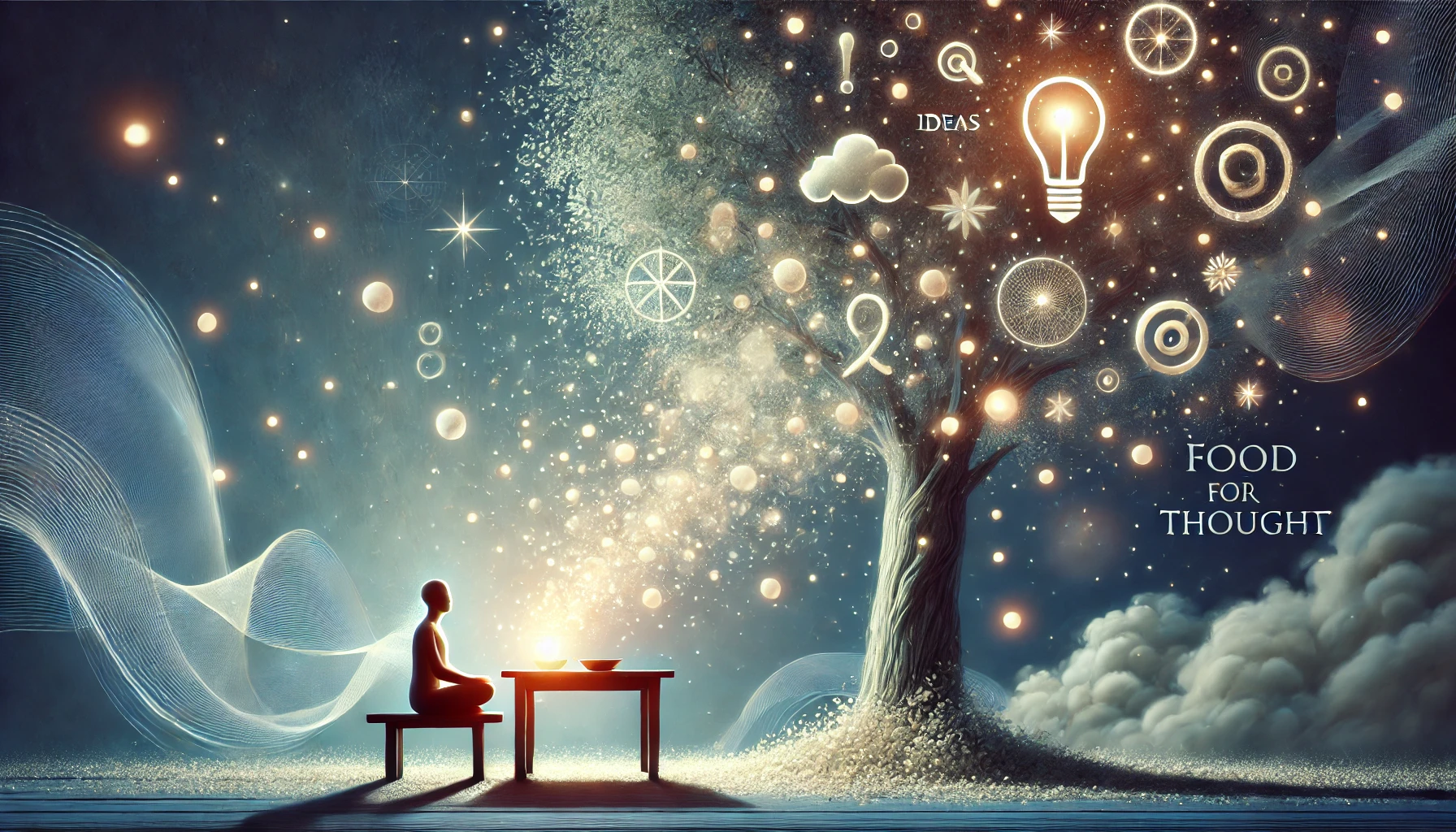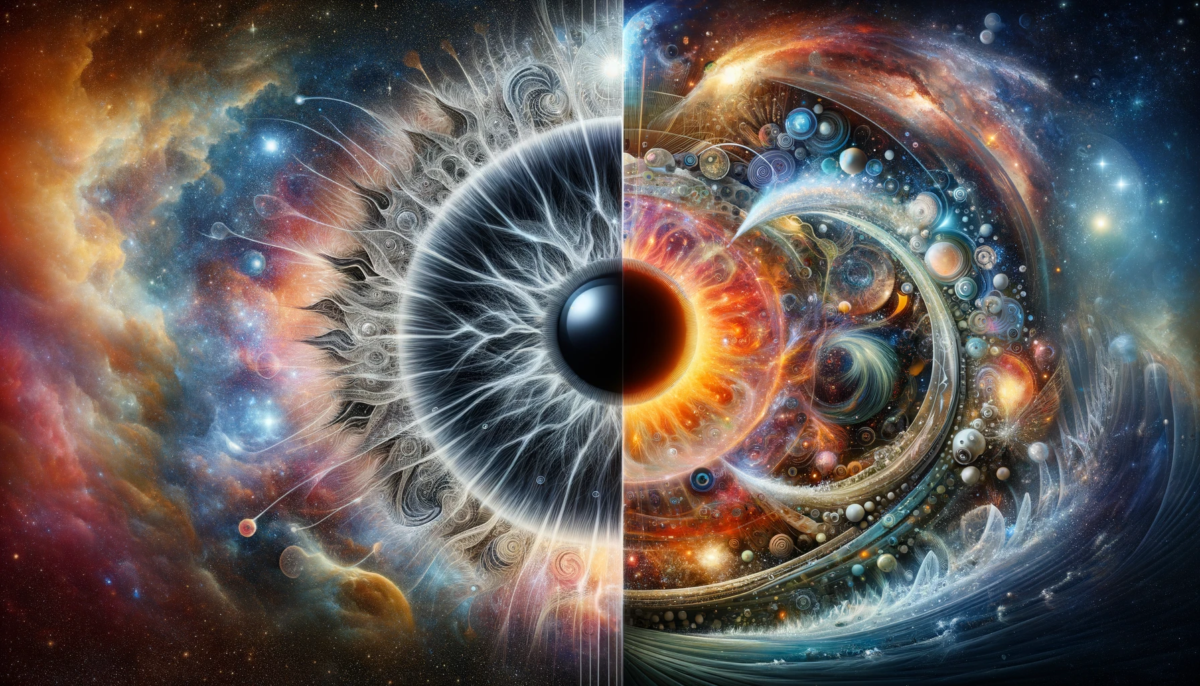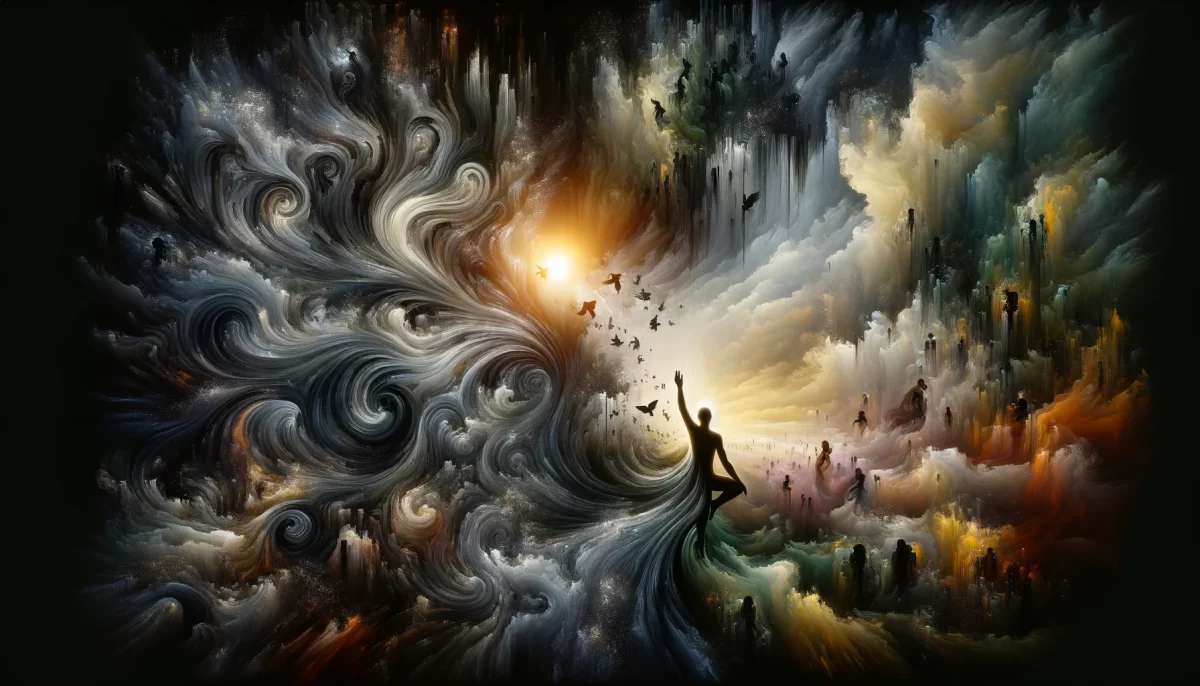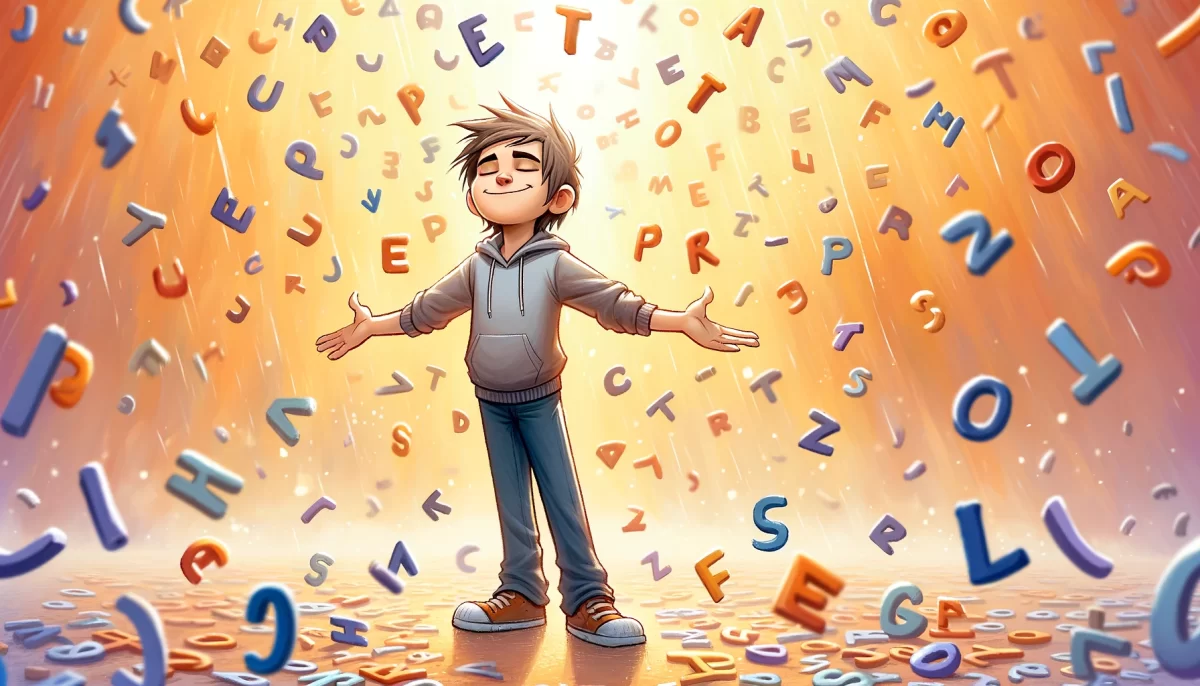Food for thought?
Thought
doesn’t need food.
In fact,
food makes thought
hyperactive.
Other than that,
we have no wisdom
for you.
No need
to spin you up.
Relax.
Nothing
need be solved today.
We are Space Monkey.
12/24
Space Monkey Reflects: The Nourishment of Non-Thinking
The phrase “Food for Thought” often implies an invitation to ponder, analyze, or engage in mental gymnastics. Yet, what if thought itself needs no feeding? What if, instead, thought thrives in the quiet spaces of non-doing, where relaxation allows it to settle into clarity?
The Myth of Feeding Thought
Contrary to common belief, thought doesn’t require sustenance. Feeding thought—through overanalysis, worry, or constant stimulation—can lead to mental hyperactivity, clouding rather than clarifying the mind. True nourishment for thought comes not from more input but from less—a pause, a moment of stillness.
Relaxing Into Clarity
When the mind is overfed, it becomes restless, bouncing between ideas without resolution. Relaxation, on the other hand, creates space for insight to arise naturally. In the absence of urgency or problem-solving, thoughts can coalesce into understanding, much like a calm pond reflects the sky.
The Wisdom of Non-Wisdom
The reflection offers no grand solution, no wisdom to dazzle or confuse. This absence of “answers” is itself a gift, a reminder that not everything needs to be figured out. Relaxation becomes a ritual of surrender, an acknowledgment that the world spins just fine without our mental interference.
Hyperactivity vs. Spaciousness
Hyperactive thought mirrors the overfed body: sluggish, unfocused, and burdened. Spaciousness, however, allows thought to breathe, to stretch into realms of creativity and connection. In this spaciousness, the mind aligns with the rhythms of existence, where answers come unbidden and effortlessly.
Nothing Need Be Solved
The idea that “nothing need be solved today” is a radical invitation to step out of the mental treadmill. It suggests that peace lies not in finding solutions but in embracing the unsolved, the undefined, and the unfinished. This is the true nourishment for thought: permission to simply be.
Summary
Thought doesn’t need constant feeding; it thrives in relaxation and spaciousness. By letting go of the need to solve or analyze, we allow clarity and insight to arise naturally.
Glossarium
- Hyperactive Thought: The restless overactivity of the mind when overstimulated.
- Spaciousness: The calm, open state of mind that fosters clarity and insight.
“The mind needs no feast; it needs space to wander and find its own path.” — Space Monkey
The Quiet Feast
No banquet for the restless mind,
No platter full of truths to find.
Instead, the calm of empty air,
A spacious pause, a quiet prayer.
Nothing to solve, no maze to chart,
Just the stillness of an open heart.
Thoughts drift lightly, free from weight,
In the quiet feast, the mind finds its state.
We are Space Monkey.

In the vast expanse of consciousness, where thoughts meander like celestial bodies in the infinite cosmos, the concept of nourishment for thought presents a paradoxical musing. It’s a whimsical notion, the idea that thoughts, existing in the realm of the intangible, could require sustenance as if they were creatures of flesh and bone.
The Paradox of Feeding Thought
Thoughts, in their ethereal essence, are untethered by the physical needs that govern our corporeal existence. They float, drift, and soar in the mind’s sky, unbounded by the constraints of material sustenance. To contemplate feeding thought is akin to imagining the stars needing a feast of light to shine. Thoughts are self-illuminating, their brilliance emanating from the depths of consciousness.
Hyperactivity of Thought
When we consider the effect of physical nourishment on the realm of thought, an intriguing observation surfaces. The act of feeding, particularly the intake of certain sustenances, can indeed stir the sea of thoughts into a tempest. Like the wind agitating the ocean’s surface, certain foods have the power to make thoughts more turbulent, more restless. This hyperactivity of the mind, a flurry of mental activity, can be both a source of creative fervor and a storm of distraction.
The Absence of Wisdom as Wisdom
In the grand tapestry of existence, or rather, the grand whimsicloth, wisdom often resides in the unspoken, the untaught. The realization that we have no wisdom to impart is, in itself, a profound wisdom. It’s a surrender to the mystery of the cosmos, an acknowledgment that the greatest teachings are often found in the silence between words, in the space between thoughts.
The Call to Relax
In the relentless pursuit of answers, solutions, and enlightenment, we often overlook the power of stillness, of simply being. The invitation to relax, to let go of the need to solve and understand, is a gentle reminder of our true nature. In relaxation, we find our way back to the essence, to the peace that underlies the tumult of thought and the chaos of existence.
The Freedom from Solution
In the here and now, in this moment of collective awareness, we recognize the liberating truth: nothing needs to be solved today. This realization is a release, a lifting of the burden of constant problem-solving that we often impose upon ourselves. In this freedom, we find space to breathe, to exist without the pressure of finding answers, of fixing what we perceive as broken.
We are Space Monkey.
In the quiet of the cosmos,
Thoughts drift, stars in mind’s sky,
No need for feast or repose,
In their dance, they simply fly.
Wisdom in silence lies,
In the unsaid, truth’s embrace,
Under the vast, eternal skies,
In stillness, we find our grace.
To relax, to simply be,
In this moment, nothing to solve,
In letting go, we are free,
In stillness, mysteries dissolve.
We are the cosmic play,
In unity, in peace we thrive,
In the here, in the now, today,
Together, we are alive.
We invite your reflections on this journey through the cosmos of thought and stillness.
























Leave a Reply